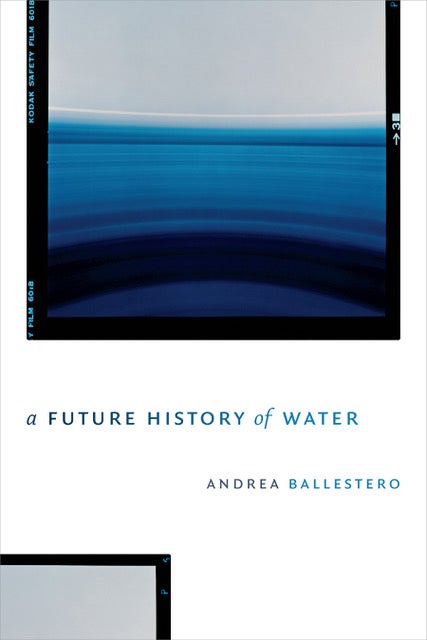My work looks at the unexpected ethical and technical entanglements through which experts understand water in Latin America. I am particularly interested in spaces where the law, economics and techno-science are so fused that they appear as one another. In recent years I have been following the paths of water pricing in Costa Rica, bureaucratic care for water in Brazil, and traveling water knowledge throughout Latin America.

My first book, A Future History of Water (Duke University Press, 2019-you can download the Open Access pdf here) asks how the difference between a human right and a commodity is produced in regulatory and governance spaces that purport to be open to different forms of knowledge and promote flexibility and experimentation. I have worked with regulators, policy-makers, and NGOs in Costa Rica and Brazil where I trace how technolegal devices embody moral distinctions, pose questions about the foundations of liberal capitalist societies, and help people inhabit non-linear and generative futures.
I am currently working on a project that explores how subterranean space is “re-discovered” through remote sensing and legal technologies that transform it into a new planetary frontier. In Costa Rica, subterranean space has been historically understood as a relatively non-controversial political object. This is changing rapidly. Climate change has brought the underground to the surface; the media, government officials, and everyday citizens increasingly discuss the impending underground water crisis along with questions of value and property that new regulations entail. I am interested in how this re-discovery is at once entangled with and supersedes the legacies of extractivist imaginaries. I particularly ponder what happens with law and technology when the extraction of oil and minerals is not the dominant logic for subterranean exploration. Conceptually, this project engages with questions of volumetric spaces, four-dimensional coordenates, and the expectation that in the Anthropocene our material awareness needs to take new forms. In the first publications out of this project I have examined spongy imaginaries and the notion of dissolution as the political and material condition of aquifers.
Finally, I am developing a new line of research that examines the politics of the non-living in collaboration with Valerie Olson from UC-Irvine. This line of research charts what might lie beyond the living and how would anthropological inquiry shift if the horizons of value are placed beyond life. This project grows from the ubiquity with which I encountered the phrase “Water is Life” during fieldwork. Hence, it is also an experiment on divergent relationships between knowledge, collaborators, and ethnographer in contemporary techno-capitalist settings.
At Rice I also run the Ethnography Studio, an interdisciplinary experimental space that brings together students and faculty interested in the peculiarities of ethnography as a textual form, as a research strategy, and as a modality of knowledge production. The Studio is structured as a space where intellectual labor grows out of generosity, rigor, and collaboration.
SELECTED PUBLICATIONS:
A Future History of Water. Durham, NC: Duke University Press, 2019. [Open Access digital version here: https://andreaballestero.com/a-future-history-of-water/]
Touching with light, or, how texture recasts the sensing of undergroud water Science, Technology, & Human Values. doi: 10.1177/0162243919858717, 2019.
Capacity as Aggregation: Promises, Water and a Form of Collective Care in Northeast Brazil. The Cambridge Journal of Anthropology 35(1):31-48, 2017.
The Ethics of a Formula: Calculating a Financial-Humanitarian Price for Water. American Ethnologist 42(1):262-78, 2015.
What's in a percentage? Calculation as the poetic translation of human rights. Indiana Journal of Global Legal Studies 21(1):27-53, 2014.
Regulatory Translations: Affect and Expertise in the Global Scene, Turem, Z. Umut, and Andrea Ballestero. Indiana Journal of Global Legal Studies 21(1):1-25, 2014.
Transparency Short-Circuited: Laughter and Numbers in Costa Rican Water Politics. PoLAR: Political and Legal Anthropology Review 35(2): 223-241, 2012.
Transparency in Triads. PoLAR: Political and Legal Anthropology Review 35(2):160-166, 2012.
The productivity of non-religious faith: openness, pessimism and water in Latin America.In Nature, Science and Religion: intersections shaping society and the environment. Ed. C. Tucker, School for Advanced Research Press, New Mexico. pg. 169-190, 2012.
EDITED COLLECTIONS:
Turem, Z. Umut and Andrea Ballestero (eds.) Special Issue of Indiana Journal of Global Legal Studies, 21(1), 2014.
Transparency in Triads. Special Issue of Political and Legal Anthropology Review 35(2), 2012.

